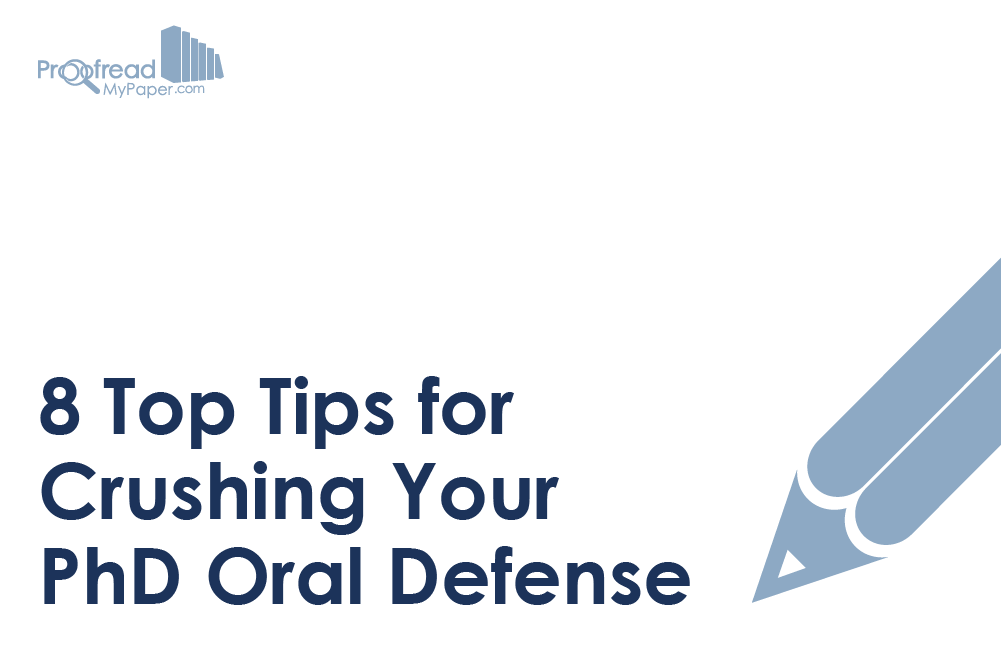Once you’ve submitted your PhD dissertation, most of the hard work is done. The one big thing standing between you and your shiny new doctorate is your oral dissertation defense.
The exact format this takes will depend on your grad school, but the general idea is that you present your thesis to a committee who have read your dissertation. The committee members then ask questions about your work, which you have to defend to prove your academic credentials. You may be asked to make revisions to your dissertation based on the discussion.
This might sound a bit like a scholastic Spanish Inquisition, but as long as you prepare thoroughly, your oral defense doesn’t have to be a stressful experience:
1. Ask Around
The first thing to do when preparing for your oral defense is to ask your PhD advisor what to expect and check your grad school’s requirements. You could also ask colleagues who have already completed their defense.
2. Practice Makes Perfect
If you get the chance, sit in on other people’s oral defense sessions. Even better, if you have some willing friends available, try practicing your defense presentation in front of them, including having them ask you questions.
3. Re-read Your Dissertation
You don’t have to memorize every detail, but re-familiarizing yourself with your work before your oral defense is definitely a good idea.
4. Arrive Early
On the day, make sure you know where and when your oral defense is scheduled to take place. Get there at least fifteen minutes early so you have time to set up and settle down.
Find this useful?
Subscribe to our newsletter and get writing tips from our editors straight to your inbox.
5. Your Thesis Statement
Make sure you have a clear thesis statement to begin your presentation. This will usually include the problem you’re addressing, why it’s important and what your research has achieved.
6. Use Visual Aids
Having handouts or a PowerPoint slideshow to accompany your talk is pretty much standard these days and can enhance your presentation.
7. Don’t Fear the Committee
It’s easy to feel like the committee members are out to get you once the questions start flying, but try not to panic. It’s perfectly fine to ask for clarification if you’re unsure about something.
Likewise, be honest if you don’t have an immediate response; it’s far better to say you’d need to do more research before answering than it is to try and bluff your way through the conversation.
Similarly, don’t feel like you have to rush. Taking a moment to think before answering a question will help you to formulate a considered answer.
8. Believe in Yourself!
The most important thing to remember is that your advisor will not have let you submit your dissertation unless they thought it was a good piece of work. As such you have every reason to be confident, which will make your presentation more convincing. Try to dress smart too, as you want to make a good first impression.



